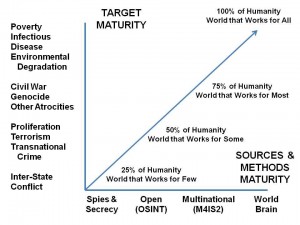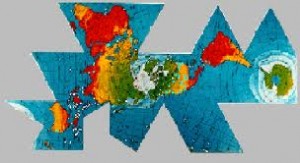
Analysis: In “borderless” cyberspace, nation states struggle
By Peter Apps, Political Risk Correspondent
Reuters LONDON | Thu Jun 9, 2011
EXTRACT:
“The nature of cyberspace is borderless and anonymous,” R. Chandrasekhara, secretary of India's telecommunications department, told a cyber security conference in London last week organised by a U.S.-based think tank, the EastWest Institute. “Governments, countries and law — all are linked to territory. There is a fundamental contradiction.”
Tip of the Hat to Chris Pallaris at LinkedIn.
Phi Beta Iota: The national secret intelligence communities mean well, but they are cognitively and culturally incapacitated in relation to both the global threats and the global infomation sharing and sense-making possibilities. It may just be that the solution has to come from a private sector service of common concern that can provide the integrity now lacking in governments and most corporation. Scary thought. M4IS2 is inevitable….delay is costing trillions.







